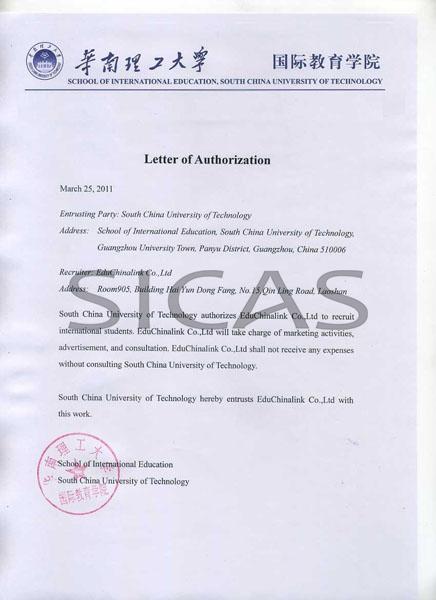

 |
School of Marxism and PhilosophyEstablished in April, 2009, the School of Marxism and Philosophy (SMP) is a school exclusively for teaching and research of ideological and political theory in the University. With a long history, the school can be traced back to the Teaching and Research Division of New Democracy and Political Economy founded in 1952 when the University was built. In 1953, the Teaching and Research Division of Marxism and Leninism was established. In the reform year of 1984, the Social Sciences Department was set up out of the division. During the period from 1993 to 1999, the Teaching and Research Division of Humanities, the Teaching and Research Division of Natural Dialectics, as well as the Teaching and Research Division of Moral Education merged into the Department successively. In 2002, the School of Humanities and Social Sciences was established with the mergence of the Arts Education Center and the Social Sciences Department. The humanities and social sciences disciplines developed fast and in 2004, the School of Humanities and Social Sciences was divided into the School of Politics and Public Administration, the School of Law, the School of Journalism and Communication, and the School of Arts. Later, the School of Politics and Public Administration was further divided into the School of Ideology and Politics and the School of Public Administration. SMP has two office places, one is in Building No. 5 on the north campus, the other is on the south campus occupying nearly 300 square meters of floor space. There are seven teaching and research divisions and a batch of research centers. The teaching and research divisions are respectively for basic principles of Marxism, ideological moral education and fundamentals of law, Maoism and Theory of socialism with Chinese characteristics, outline of Chinese contemporary and modern history, situation and policy, contemporary world economy and politics, and graduate ideological and political theory. The university-level research centers include research center of Marxism theory, research center of future and development, study room of united front theory and policy, psychological counseling and health education center, institute of governmental development policy and performance appraisal. The school-level research centers include institute of Marxism Chinalization, institute of philosophy, institute of ideological and political theory construction, institute of ideological and political education, research center of scientific technology philosophy, development center of think tank, institute of psychological assessment and applied psychology. The school has a strong faculty. Currently there are 60 full-time teachers, including 22 professors and associate professors. Among the faculty, 35 teachers hold a PhD accounting for 58% of the entire faculty. Five teachers were elected as participants of Guangdong Higher Education Institution “Thousand, Hundred and Ten” project. Nine teachers were elected as participants of Guangdong Ideological Front “Ten, Hundred and Thousand” project. Two teachers were elected as Guangdong Education Department backbone teachers in ideological and political theory teaching. Two teachers were awarded Guangdong Excellent Teacher. Four teachers were awarded Guangdong Excellent Teacher of Two Courses. The classroom teaching of one teacher was nominated in the ideological and political theory wonderful class award initiated by the Ministry of Education. One teacher was awarded as Guangdong famous teacher in ideological and political theory teaching. Two teachers received the university famous teacher award. Three teachers got the Nanguang award. One professor is the leading teacher of the university Xinghua Talents Project discipline group, two are chair professors in Xinghua Talents Project teaching groups, and one is distinguished professor of the university Hundred Talents Project. SMP has made notable achievements in discipline construction and student education. SMP has 1 second-grade discipline doctoral program of Marxism Chinalization, 2 first-grade discipline master’s programs of Marxism theory and philosophy, 6 second-grade discipline master’s programs of basic principles of Marxism, Marxism Chinalization research, research of fundamental issues of Chinese contemporary and modern history, ideological and political education, Marxism philosophy, and scientific technology philosophy. Presently there are 64 master’s degree candidates and 14 doctoral candidates in school. SMP has 2 provincial reputed elaborate courses (introduction to Maorism and Marxism philosophical principles), 3 provincial high-qualify courses (introduction to Marxism basic principles, Maoism and Theory of socialism with Chinese characteristics, and ideological moral education and fundamentals of law), and 3 university elaborate courses (introduction to Marxism basic principles, Maoism and Theory of socialism with Chinese characteristics, and ideological moral education and fundamentals of law). In the past 5 years, SMP has got 64 research projects initiated, including 2 national social sciences foundation projects, 18 provincial or ministerial projects, 44 departmental and university-level projects. 24 articles were published in leading journals and magazines, such as Chinese Social Sciences, Philosophical Research, Marxism Research, Research of Chinese Communist Party History, etc. Over 140 papers were published in domestic core journals. More than 10 papers were reprinted by Renmin University of China or reproduced by other periodicals. The school has over 20 academic works published, and edited 10-plus textbooks and reference books. Besides, SMP has won 7 awards at provincial or ministerial level for research achievements. Taking developing with its own characteristics as its guideline, SMP is dedicated to idea cultivation, political orientation and professor administration, with its focus on teaching quality. In the future, SMP will unify the school’s entire strength to create an atmosphere of solidarity, morality, fairness and humanism, and build the school into to a new one with ideological- and political-orientation, development with fine quality and unique characteristics, to make greater contributions to the University and society. |







